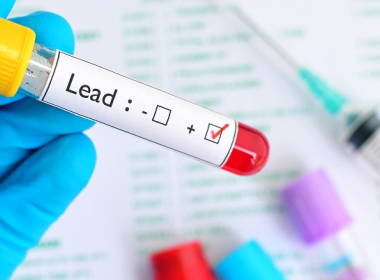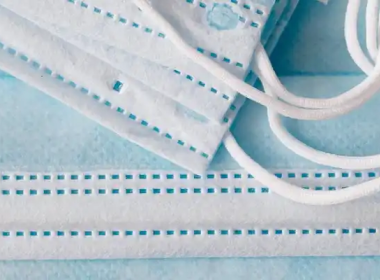Article
Advancing Equity through Advocacy By: Paul Dworkin, MD and Marcus Smith Encouraging our public officials to address the needs of children, in contrast to prioritizing their voting constituents, is a daunting challenge. Despite the often-cited truth that “children are our future,” support for children’s issues is
What to Expect: Getting Blood Drawn Download PDF version For tips on how to use this picture story, please review our picture story instructions . Welcome! Here we go...to get my blood drawn!
Article
Food Insecurity: A Rising Pandemic By Nancy Trout, MD: By: Nancy Trout, MD, MPH The coronavirus pandemic has cracked open and exposed the perils of deeply ingrained inequities on many fronts: economic, social, educational, judicial and medical. We see the impact of these inequities in a variety of ways, including through rising rates
Article
Pandemic Breastfeeding By Nancy Trout, MD: By: Nancy Trout, MD, MPH It’s a great time to review the benefits of breastfeeding for mothers, babies, and the environment as August is National Breastfeeding Month. This particular year, it is also worth looking at the value of breastfeeding in the middle of a pandemic and
Article
Responding to Violence in the Home During COVID-19 By: Amy Hunter, PhD, MPH, Susan DiVietro, PhD, and Rebecca Beebe, PhD The COVID-19 pandemic has brought a new level of concern to those of us who work to prevent intimate partner violence (IPV) and child maltreatment. Since the pandemic hit, the Connecticut Coalition Against
Article
Easy Breathing Asthma Program Goes Digital By: Jessica Hollenbach, PhD and Christine Langton, MSW, MPH The COVID-19 pandemic placed new pressure on healthcare providers to adapt to the rapidly changing healthcare landscape. Innovative solutions are more welcome and necessary than ever. Our Easy Breathing asthma management
Article
Innovation and Housing as a Platform for Childhood Prosperity By: Marcus Smith, MBA and Jacquelyn M. Rose, MPH This is the last in a series of four blog posts that we plan to publish during Healthy Homes Month that explores how organizations can leverage housing innovations as a platform to help children to flourish, thrive, and succeed
Article
Healthy Housing: Moving the Needle from Intervention to Prevention By: Marcus Smith, MBA and Jacquelyn M. Rose, MPH This is the third in a series of four blog posts that we plan to publish during Healthy Homes Month that explores how organizations can leverage housing innovations as a platform to help children to flourish, thrive, and succeed
Article
Strengthening Families During COVID-19: Daunting Challenges and Enormous Opportunities By Paul Dworkin, MD: By: Paul Dworkin, MD As the COVID-19 pandemic accelerated across the nation and the world, child health providers took some comfort in recognizing the relatively limited impact of the disease on children as compared to adults and, particularly, seniors. Notwithstanding the
Article
Healthy Housing: Innovation Gone Wrong By: Marcus Smith, MBA and Jacquelyn M. Rose, MPH This is the second in a series of four blog posts that we plan to publish during Healthy Homes Month that explores how organizations can leverage housing innovations as a platform to help children to flourish, thrive, and succeed
Article
We Must Address Basic Needs During and After COVID-19 By Erin Pastor, MD: By: Erin Pastor, MD I am a pediatric resident physician on the brink of graduation. The COVID-19 pandemic has profoundly altered everything I learned during my medical training. In particular, my outlook on how best to support patients has forever changed and I have increased
Amenities & Services When it comes to a hospital stay, comfort is an absolute must. Whether your child's stay is one night or longer, we're here to connect you with anything you need.
Article
When #StayHome Does Not Equal #StayHealthy By: Marcus Smith, MBA and Jacquelyn M. Rose, MPH This is the first in a series of four blog posts that we plan to publish during Healthy Homes Month that explores how organizations can leverage housing innovations as a platform to help children to flourish, thrive, and succeed
RAA Submit Thank you page Thank you for your request. Someone will reach out to you to schedule your appointment shortly.
Medical Staff Office The Medical Staff Office manages the Medical Staff Application for Privileges process, as well as the credentialing of all physicians, dentists, podiatrists, psychologists and other medical staff practitioners. Our team is dedicated to assist Connecticut Children’s in its goal to